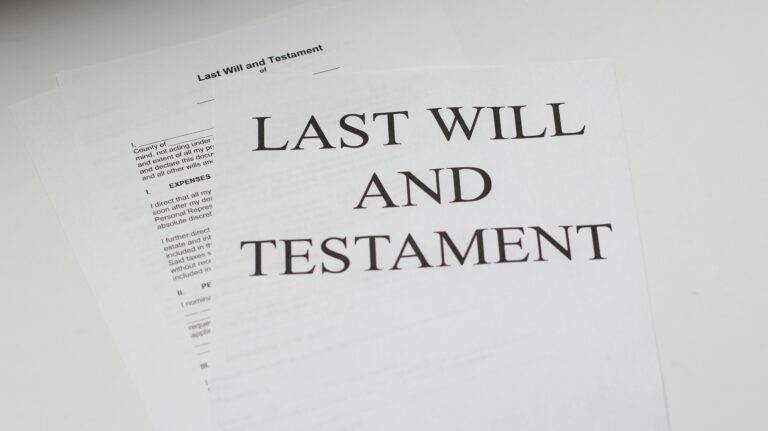
A will ensures that your personal and financial assets are given to the people and organizations you want. It also allows you to choose the person you want to settle your affairs, known as your executor. The time to have a will prepared is typically the same time people have a power of attorney and healthcare proxy forms prepared, according to the article “What Happens if You Die Without a Will?” from The Street.
Your estate plan is the term used to describe having all of these and other tools prepared to work together. It has nothing to do with the size of your estate, which could be modest or major. Regardless of the financial size or complexity of your life, you need a will.
What happens without a will?
A married person with children who dies without a will does the family a great disservice. All property, including real estate, investments and accounts that are jointly owned with the spouse go to the co-owner without needing to go through probate (however, there are caveats to this—if it's owned as tenants in common, the result is different). Separately owned property and accounts are distributed by the state in the absence of a will. Depending on the state, half or one-third may be awarded to the surviving spouse, and the remainder may be divided among the children. If the children are minors, the funds will be held in an account only accessible with court approval. The family may find itself without sufficient funds to maintain its lifestyle.
A person who is married but has no children or grandchildren and dies without a will may have their entire estate given to the surviving spouse. However, some states have a cap of $100,000. Other states give a third to one-half of assets to the surviving spouse and the rest to the deceased’s parents, if they are living, or to the siblings. Jointly owned property, accounts and community property go to the surviving spouse.
What about a single person with children? With no will, the state law gives the decedent’s assets to surviving children in equal shares. If an adult child is deceased, their share is split among their own children (the decedent’s grandchildren). However, if the children are minors, the money is subject to court control and supervision.
If someone who is single and has no children dies, the state usually gives their assets to surviving parents. If the parents are not living, the assets will be distributed to the decedent’s siblings, or nephews and nieces, if the siblings have also passed. The state will reference a consanguinity chart—a chart used to help identify relationships of people showing degrees of family relationships by blood or marriage. Assets may pass to distant cousins who have never met or even known of the existence of the decedent.
If there are no living family members, the estate typically goes to the state itself.
When a member of an unmarried couple dies without a will, the surviving partner has no legal rights at all. Only spouses and relatives are recognized by state law. The partner will not inherit anything; assets will pass as if the person was single.
Domestic partners are treated differently in different states. In some states, they have inheritance rights, but this is state-dependent.
Sound like a mess? An experienced estate planning attorney can create a will and related documents to ensure your wishes are carried out upon your death. Otherwise, your estate will be distributed according to the laws of your state. You can protect yourself and your loved ones with a will.
Reference: The Street (Jan. 2, 2023) “What Happens if You Die Without a Will?”
